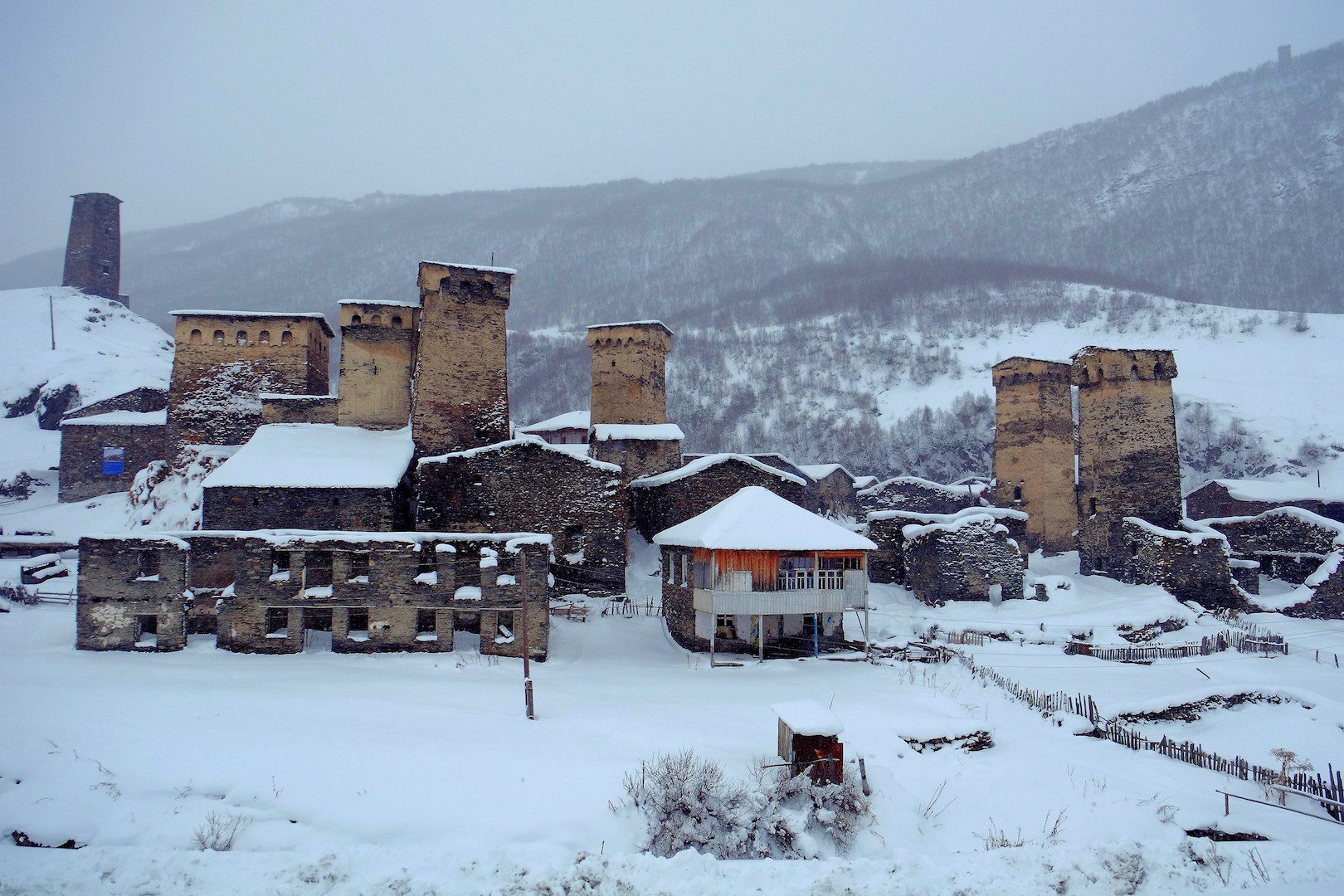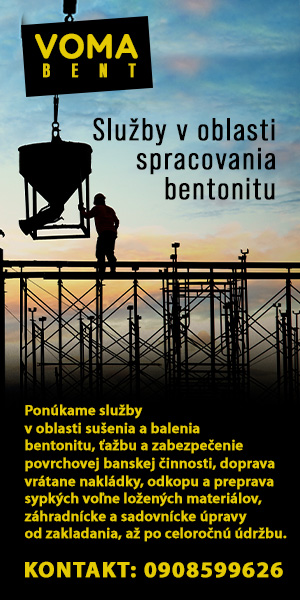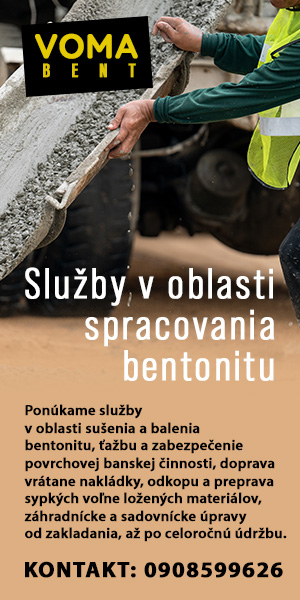Running a successful travel blog, a café and travelling all around the world sounds like an interesting job only someone passionate about their work could do.
One such person in Slovakia is Jozef Terem. As he says about himself, he’s a person who loves to explore the world.
You are a full-time traveller, run a café and a travel blog — both aptly named ‘Dobrodruh’ (‘Adventurer’) — and you also organise group trips. It sounds like a dream job that people might envy your for. The question now arises: What are its disadvantages?
As a full-time traveller, you’re always on the road and haven’t got much time for yourself, family or hobbies that aren’t travel-related. You’re restless all the time because there are always new challenges. The more you travel the world, the more you want to explore the unknown, and once you think you’ve seen enough you meet interesting people who inspire you and give you ideas about new places to visit. Paradoxically, there’s always this restless traveller inside you because you’re surrounded by challenges. Of course, this dream job isn’t as well-paid as others. There are pros and cons to everything. When I started out I was in a dilemma: should I become a full-time traveller or conform to society’s standards and build a career in some different field?
Sightseeing tours in different cities in Europe or outside it are very popular nowadays. People are also intrigued by exotica and adventure. In your opinion, what type of travellers are Slovaks in general?

I’d say that we’re still just beginners. Of course, it’s fairly easy to buy a plane ticket and book accommodation nowadays. It isn’t as adventurous as it used to be fifteen years ago. We aren’t inexperienced when it comes to this, but we lack tact, sensitivity, cultural understanding and travel etiquette. We’ve got to understand that people are poor in many countries; they don’t beg for money because they want to scam us, but because they consider us rich and begging is often their main livelihood. Also, we don’t always respect local customs — we take photos of local people even when they don’t wish it; we don’t take into account the unique complexities and values of a local destination. Though a lot of Slovaks are experienced, they are often badly behaved travellers. Let’s look at travellers from some other countries whose history is full of discoveries and expeditions, such as the English, French, Spanish or Italians — they treat local people with much more tact and respect; they can refuse or say ’thank you’ with a smile. This may be thanks to their knowledge of a local language, whether it be Spanish or French, or also to their self-confidence stemming from better financial conditions.
Do you like returning to Slovakia? Aren’t you ever tempted to settle abroad?
I do like coming back. Of course, one can’t help thinking about living abroad, but Slovakia is close to my heart — except Bratislava, which in my opinion has gone downhill recently. I used to love it but am sceptical about all its changes during the last few years. However, I like Slovakia’s complexities and nature. It’s wonderful that we’ve got four seasons that are each unique when it comes to nature’s variety, which is not the case for tropical countries. I’ve never seriously thought about living abroad. I like living here, going abroad regularly and recharging my batteries. Besides, I can’t imagine doing this job abroad and succeeding— it wouldn’t be easy to build a successful blog, contribute stories to widely read magazines, present myself as a person who likes to travel and to become acknowledged as a full-time traveller. Slovakia has been the right place for me so far.
Do you think Slovaks fully appreciate the beauty of Slovakia?
I think that they can, and many Slovaks fully enjoy outdoor activities and like the country when it comes to this. Their sceptical attitude towards politics and society is another thing, however. I see a lot of Slovaks who go hiking in the mountains and do sports. All kinds of problems are caused by the uneducated and the money-grubbing – often people who are in charge are able to commit all kinds of atrocities to monuments, nature and so on. And then there are people who make decisions about places they didn’t grow up in or which aren’t dear to their hearts. All in all, I think we like Slovakia, but we’re often shallow and not attuned to our surroundings.
As a full-time traveller you’ve been to many Islamic countries. In the light of unpleasant events in the last few years, many people are biased not only against Islamic countries but also against Muslims, which often results in extreme xenophobia. What’s your point of view?
We definitely lack information. Our media presents only one side of an issue and ignores the other one. People, especially those who don’t travel, are unfamiliar with the situation in other countries. I find it ridiculous when somebody says, for example, that Romania is a dunghill or that killings occur on an almost daily basis in Albania. Romania is a beautiful country visited by people from all around the world – by the French, English, Italians; Prince Charles has even bought a cottage there. It’s no longer a communist country; its nature and villages are picturesque. Romania has come a long way, and it’s unbelievable. The same goes for Albania. It has beautiful and busy seaside resorts, sea, nature and so on, yet we only hear about Albania when somebody is assaulted or dies there, which basically happens everywhere. However, those who have been to Albania know better. As for Islamic countries, people bad-mouth them. We have visited Tunisia and been to Morocco twice in the last year. The locals are amazing and very kind and have nothing to do with terrorism or orthodox Islam. They’re people just like us — nice and cheerful with families and friends. One should go there without prejudice, experience a country and take time to listen to others’ viewpoints. Only a small percentage of Slovaks travel, we spend money on material things rather than on experiences. Yes, perhaps it’s because we haven’t got much money, but you can travel on the cheap if you know how and have a little bit of courage. If you really want to travel, you’ll find a way.
Today, tourism is much more developed than in the past. Travel is no longer unaffordable, which is a good thing but also brings with it certain disadvantages. What do you think are the disadvantages of mass tourism?
I find it ridiculous when somebody says, for example, that Romania is a dunghill or that killings occur on an almost daily basis in Albania. Romania is a beautiful country visited by people from all around the world – by the French, English, Italians; Prince Charles has even bought a cottage there.
One disadvantage is that almost nothing now is precious. In this Internet era, we can book plane tickets and accommodation from home, which causes travel to lose its magic in terms of adventure. Hotels are overcrowded, so many places of great natural beauty are being turned into new establishments. It’s similar to a digital photo. In the past, we used to shoot film and every photo was precious. We were looking forward to developing our film and trying to guess how well our photos would come out. It was a big deal. There were fewer photographers than now, and they were more respected. It was a demanding job, so people did it because they genuinely loved it. Nowadays, everybody uses digital cameras, which is a good thing on the one hand, but on the other hand, the point and joy of photography as an activity has partly disappeared. Similarly, we’re losing the wonder of travel. We can say that travel isn’t such a big adventure any more. It’s hard to find new places. Of course, there are still some that are off the beaten track, but it’s getting more and more difficult to find them. Everybody involved, whether tourists or locals trying to offer something new, is aware of all the different options available.
What places in the world do you think are yet to be discovered?
I see great potential in Africa, especially in its unvisited landlocked countries, some of which were troubled with unrest and civil wars. Of course, levels of safety and access to interesting landlocked areas in these countries are often uncertain. Fifteen years ago, Myanmar was under the rule of the military junta and had many inaccessible areas, but almost everyone goes there nowadays, though it was a very unusual travel destination until recently. Naturally, there are still places, such as the Amazon rainforest or New Guinea, where you don’t meet a lot of tourists, or politically isolated countries like North Korea.

Isn’t it a problem that people like you and basically, all of us, are contributing to the loss certain places’ unique identity? Locals go out of their way to adapt to tourists and tourist destinations lose their authenticity…
That’s right, there are many full-time travellers. Perhaps I’m in the minority in Slovakia, but there are a lot of people like me around the world, and everybody’s in quest of similar places – even Mount Everest is so crowded these days, it’s now just another place blighted by mass tourism. Ditch your Lonely Planet, I say – the places listed there are always crawling with tourists. You should go to places that haven’t been explored. You may not see the highlights, but if you want to feel more connected to the country’s history and culture, venture off the beaten path, and you’ll find that every country offers plenty of beautiful spots that aren’t in the guide books. Take my word for it. All you’ve got to do is ask the locals. After all, we Slovaks could also recommend a lot of lovely places – not only places like the High Tatras, Terchová or Orava Castle, which are listed in every guide book, but lots of much less well-known local gems.
Among your activities, you also organise trips with a strong dose of adventure. This year you organised a trip to Morocco, and you’ve just come back from a two-week motorcycle trip across India. Adventure is essential for everything you do. Why does this aspect of travel appeal to you so much?
Ditch your Lonely Planet, I say – the places listed there are always crawling with tourists.
As I said, travel itself was an adventure when I was a beginner. In the world without the Internet and mobile phones, the mere journey to India was interesting and full of adrenaline, because you had to discover all the paths by yourself. It doesn’t work like that anymore; that’s the main difference. That’s why I prefer sports or hiking, going to the mountains, rafting or exploring new places in some unusual ways and so on. I no longer seek the type of travel where you wander around a country, do some sightseeing and get to know places and museums. Now I look more for sporting experiences and challenges.
You’d been to India some time ago and returned there in July after years. It’s a country that fascinates many people. What are your experiences?
We experienced India on motorcycles – aboard old Royal Enfield Classics that are very popular on India’s mountain roads. Every Indian who’s got a motorcycle rides a Royal Enfield. We were touring through the Himalayan Mountains in the north of the country; there are very harsh conditions up there, small villages and few inhabitants. It was an adrenaline-packed adventure, because we often rode on narrow unpaved roads and across high mountain passes over 5,300 metres above sea level. The air was really thin up there. Mont Blanc, which is considered the highest mountain in Europe (if we don’t take into account Elbrus in the Caucuses), rises to a height of 4,810 metres and in India, there are mountain roads at that altitude where you can ride a motorcycle or an off-road vehicle. It’s an absolutely unique area when it comes to this.

After the revolution people were finally free to travel to foreign countries. What were the first countries you went to?
As was usual back then, we hitchhiked across Europe. We set off right after the revolution with only a few German marks to buy the bare essentials. We’d walk with sleeping bags, sleep by the sea and in parks and eat oatmeal for breakfast, lunch and dinner. Travelling fascinated me, and I didn’t mind the hardship and discomfort that went hand in hand with it. I wasn’t even bothered by the fact that we couldn’t afford to stay in a hotel and slept under the stars. I think that the Western world and local people accepted it because they knew we wanted to explore their countries. Things were different back then. Nowadays, people travel comfortably and are outraged when they find themselves without hot tap water or showers or when their food isn’t well-prepared. I find it a little bit absurd – it’s a demonstration of absolute ignorance of social conditions, when somebody expects the same service in India as in Europe. Some countries will always be quirky. People today go on holiday all over the globe and many of them aren’t willing to break free from their comfort zones and to adapt to local customs; on the contrary, they expect local people to cater to their every whim. And what happens then? You’re in destinations like Egypt, the Dominican Republic or Zanzibar but stay in a globalised resort and feel no beat of the local culture.

What are your unfulfilled dreams? Are there any places you’d like to visit?
There are certain places I don’t return to very often; I’d rather visit some new places and places that remain unchanged, I am purposefully saving for later. For example, civilised countries such as Canada or Australia are at the bottom of my travel bucket list, because I don’t think they’ll change in twenty years’ time. I choose places that are beginning to become tourist destinations – they are changing very fast and the chance to experience something reflecting local traditions may disappear in a few years.
Some time ago you decided to open a café for travellers called Dobrodruh. What do you think is its purpose when compared to other cafés? What makes running such a café rewarding?
I’d had this desire to create a place for all avid travellers, hikers and adventure-seekers for a long time. I’d been wanting to do it for many years and finally succeeded two years ago when I opened Dobrodruh near Istropolis in Bratislava. It’s a club, café and pub where a lot of travel lovers meet and have a good time. We have meetings where people share their experiences and display their photographs. The walls are adorned with many articles that are the reminders of our journeys. It’s also a place for readers of the dobrodruh.sk blog, which exists to motivate people and to provide them with interesting information. My blog, café, trips and meetings are all connected and under the name ‘Dobrodruh’ I try to create the widest range of activities possible so that people can get inspired, change their lives and make their dreams come true.
Text: Miriama Vojteková, photo: Jozef Terem’s archive



































































































